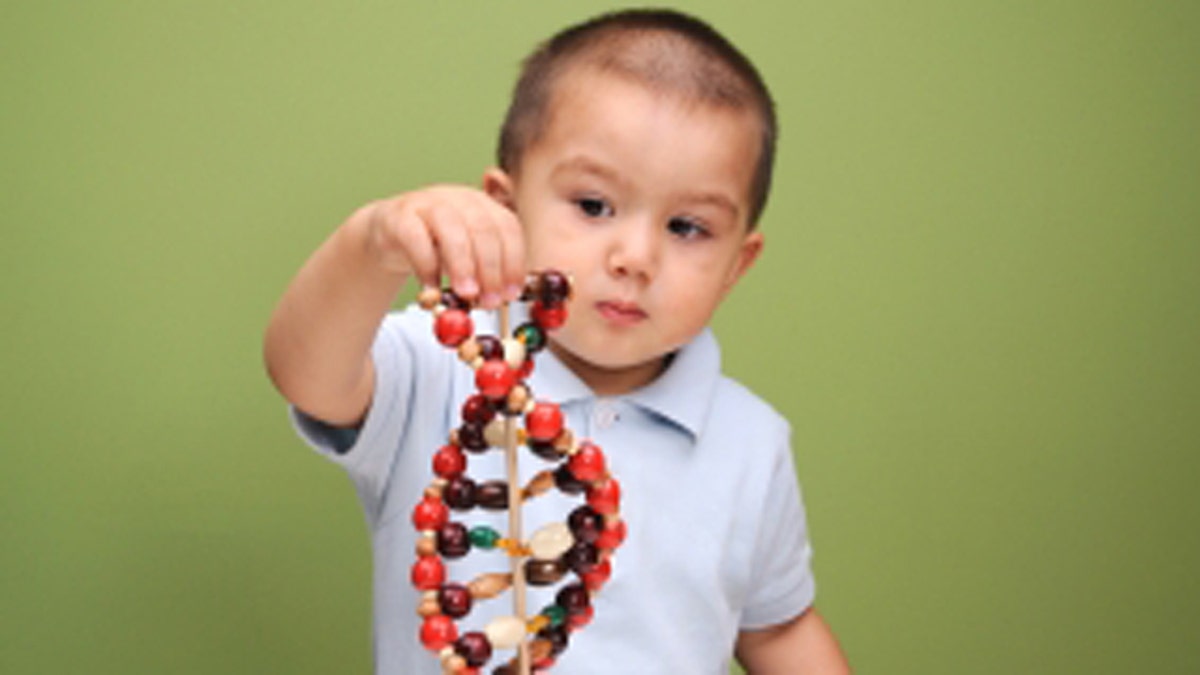
( )
Spontaneous and rare gene mutations are likely the cause of autism in families with no previous history of the disorder, a trio of U.S. studies suggest.
Two studies published in the journal Neuron describe a series of genetic variants that boost the risk of autism, a developmental disorder that appears by age three and affects about one percent of children in the United States.
A third study sheds light on how these disrupted genes tend to take aim at a particular target, the formation of the brain's synapses, or junctions that allow signals to be passed between neurons.
Researchers honed in on a region of the human genome that, when altered, tends to either produce autism in an individual or causes a completely opposite, extra-friendly disorder called Williams syndrome.
Autism can result when genes mutate and form extra copies of the region. But when parts of the region, called 7q11.23, are missing, people may develop Williams syndrome, which is often characterized in part by a highly sociable personality.
"This region of the genome could be a Rosetta Stone for studying the development of the social brain," said lead author on one of the studies, Matthew State at Yale University.
People with Williams syndrome may be extremely trusting of strangers and have a particular affection for music but may also exhibit developmental disabilities, learning disorders and disfigurement of the face and hands.
Autism includes a wide spectrum of developmental differences and may range from mild social awkwardness to complete inability to communicate, repetitive movements, sensitivity to certain lights and sounds, and behavioral problems.
The two studies led by researchers from Yale and Cold Spring Harbor Laboratory in New York examined the genomes of more than 1,000 families in which one child was autistic and the siblings and parents were not.
Their findings appear to confirm a growing body of evidence that autism can be caused by a randomly occurring mutation at any one of several hundred different sites in the human genome, researchers said.
"These studies are the culmination of a several-year effort to understand the role of genetic variants in autism," said Gerald Fischbach, scientific director at the Simons Foundation, which funded the two studies.
"The microarray studies have shown beyond doubt that there are indeed rare genetic variants that account for a significant fraction of autism."
The third study was headed by Dennis Vitkup of Columbia University, and focused on the molecular network in the brain that is disrupted by the genetic mutations during formation, a process called 'perturbed synaptogenesis'.
Vitkup's team also found that significantly larger genetic mutations were needed to cause autism in girls, which could explain why the disorder affects boys four times as often.
